Types of Countertops: A Comprehensive Guide
I. Introduction
A countertop is a crucial element of any kitchen or bathroom, serving as both a functional surface and a design statement. Choosing the right countertop material is essential for creating a space that not only meets your needs but also reflects your personal style. In this comprehensive guide, we will explore different types of countertops, their unique characteristics, and the factors to consider before making a decision.
II. Natural Stone Countertops
- Granite Countertops
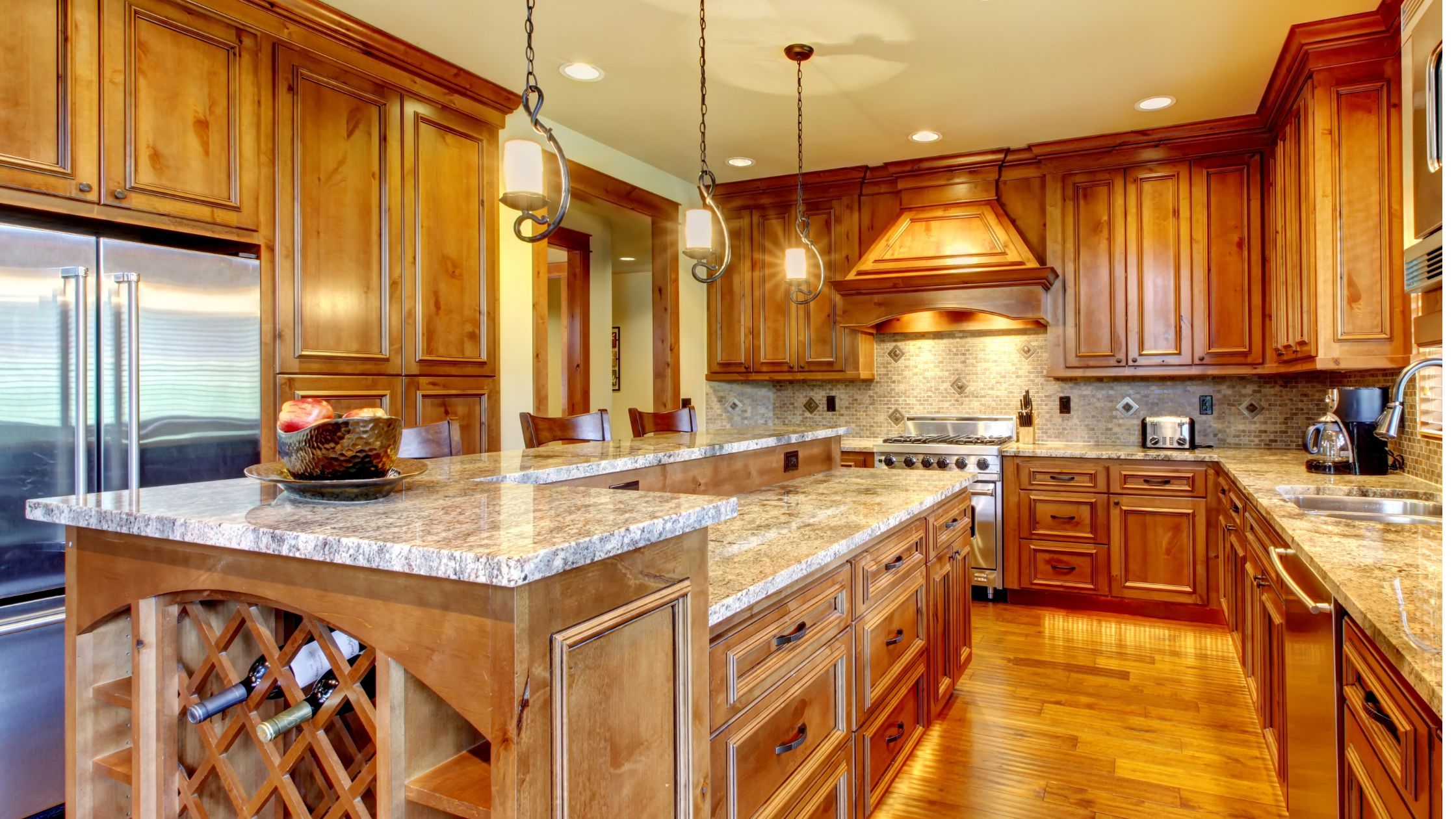
Granite countertops are renowned for their durability and strength, making them an excellent choice for high-traffic areas. With a wide range of colors and patterns available, granite countertops can complement any kitchen or bathroom design. To maintain their beauty, regular sealing is recommended, and spills should be promptly cleaned up.
- Marble Countertops
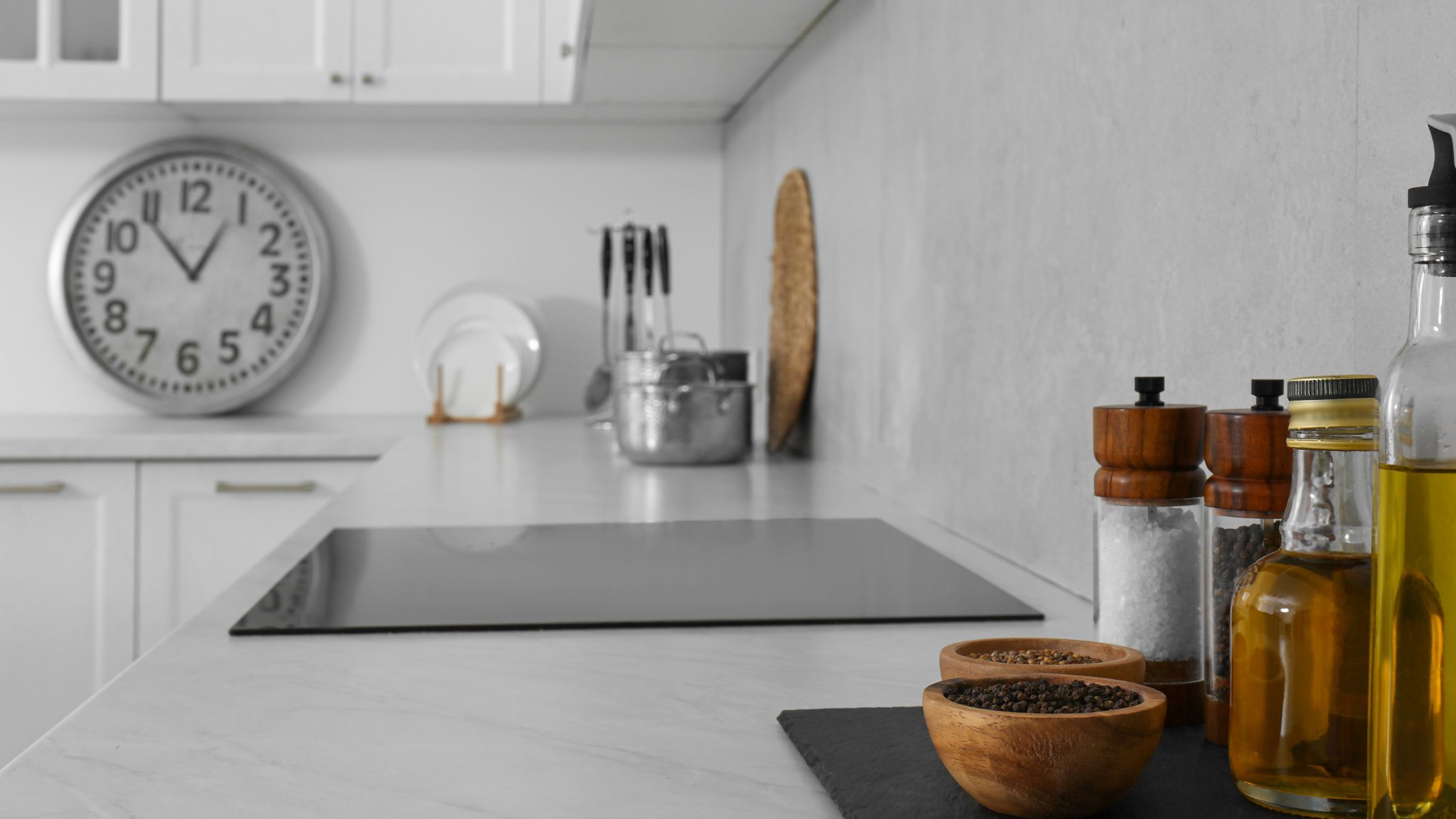
Marble countertops exude elegance and timelessness, making them a popular choice for both traditional and contemporary settings. The unique veining and patterns of marble create a luxurious aesthetic. However, marble is a softer stone and can be susceptible to staining and etching. It requires regular sealing and cautious handling to preserve its pristine appearance.
- Quartzite Countertops
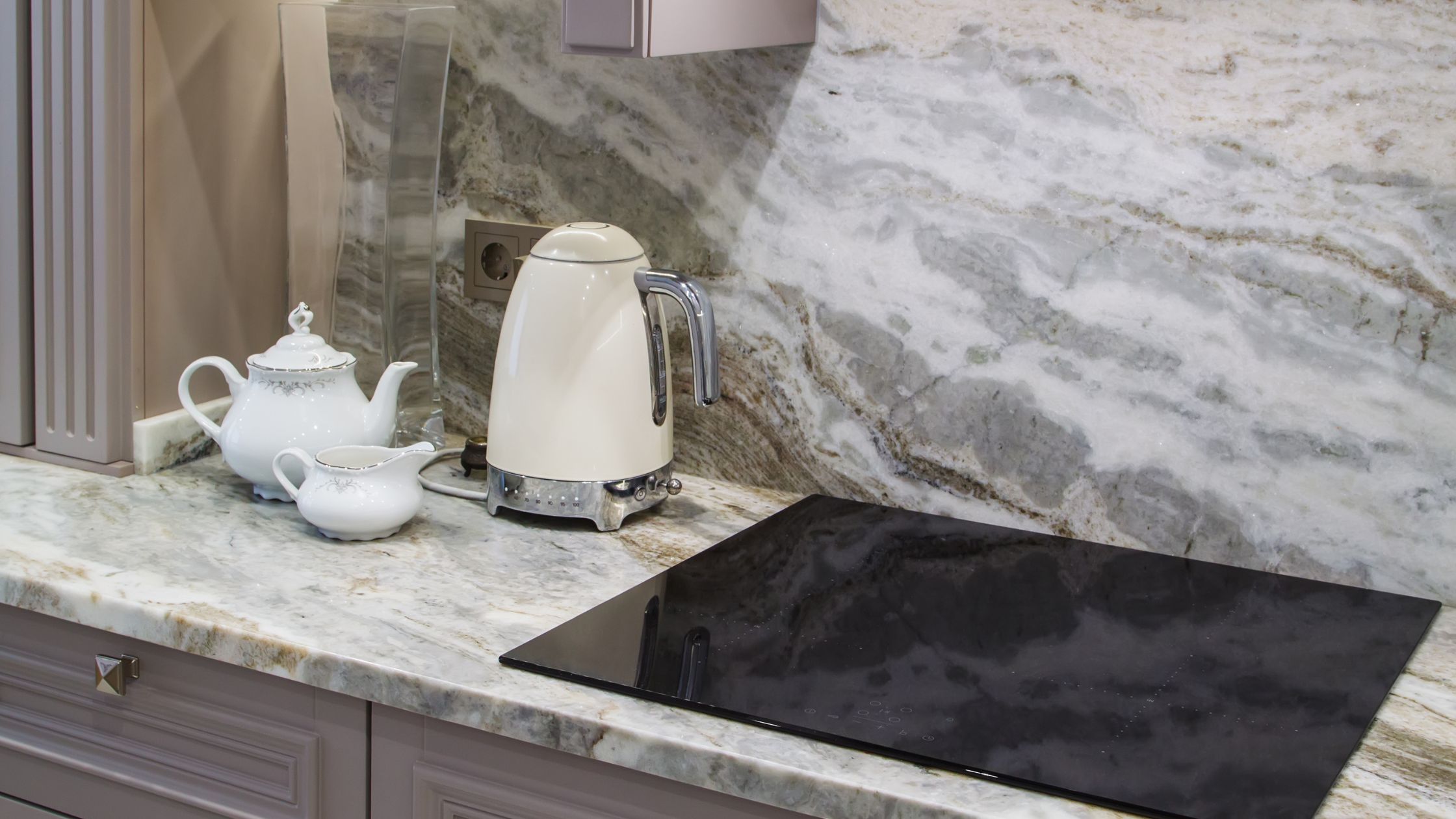
Quartzite countertops offer the best of both worlds, as they are natural stones with properties similar to quartz. They are highly resistant to heat and scratches, making them suitable for busy kitchens. Quartzite countertops require regular sealing to maintain their durability and strength.
- Soapstone Countertops
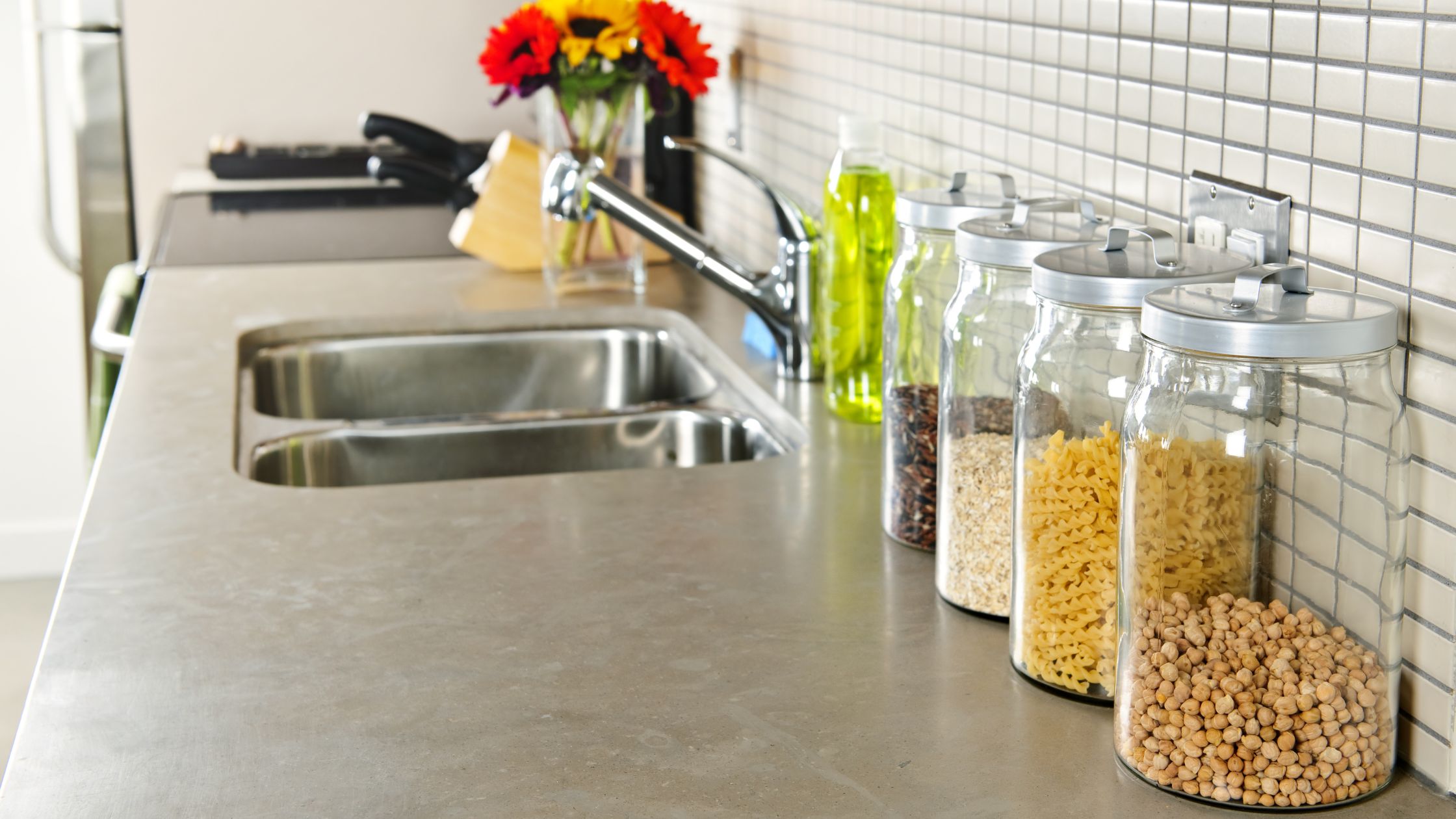
Soapstone countertops are known for their naturally dark and rich appearance, adding a touch of elegance to any space. They are highly resistant to heat and stains, making them ideal for kitchen environments. To maintain soapstone countertops, regular application of mineral oil is recommended to enhance their natural beauty.
- Slate Countertops
Slate countertops provide a rustic and earthy aesthetic, adding a unique charm to any kitchen or bathroom. They are non-porous and highly durable, making them resistant to stains and scratches. To keep slate countertops looking their best, regular cleaning with non-abrasive products is recommended.
III. Engineered Stone Countertops
- Quartz Countertops
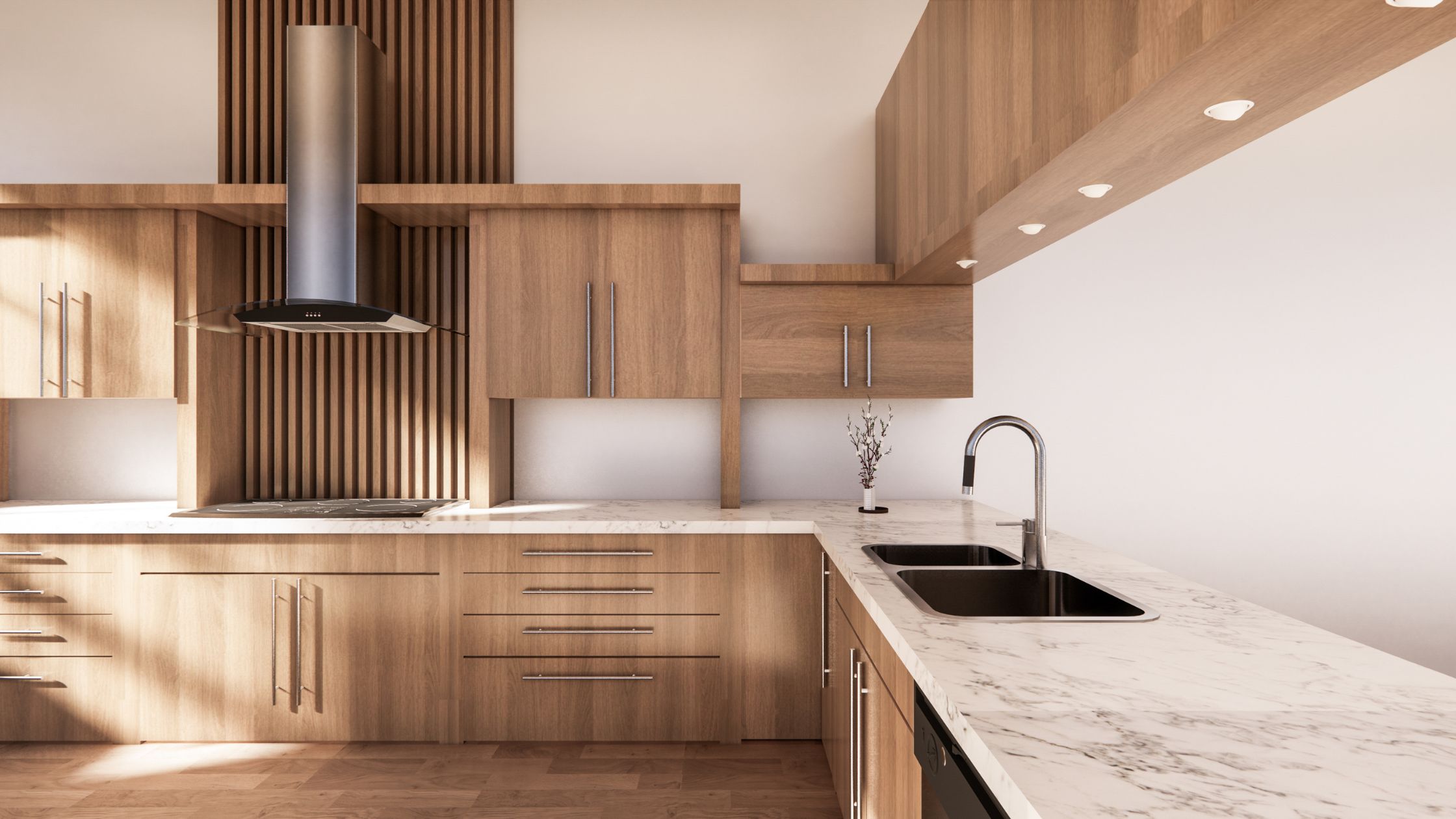
Quartz countertops, also known as engineered stone countertops, are a popular choice due to their non-porous surface, which makes them highly hygienic and easy to clean. They come in a wide variety of colors and patterns, offering endless design possibilities. Quartz countertops are low maintenance and do not require sealing.
- Solid Surface Countertops (e.g., Corian)
Solid surface countertops, such as Corian, are a versatile option with seamless installation and repair capabilities. They offer a wide range of design options and can mimic the appearance of natural stone. Solid surface countertops are easy to maintain and can be cleaned with mild soap and water.
- Concrete Countertops

Concrete countertops provide a customizable and unique design choice, suitable for both modern and industrial-style kitchens. They are incredibly durable and resistant to heat. Concrete countertops require regular sealing to prevent staining and should be cleaned with a pH-neutral cleaner.
- Terrazzo Countertops
Terrazzo countertops are made from a combination of marble, quartz, and other recycled materials, making them an eco-friendly choice. They offer a sleek and decorative look with a wide range of colors and texture options. Regular sealing and gentle cleaning are essential to maintain the beauty of terrazzo countertops.
- Ceramic Tile Countertops
Ceramic tile countertops are an affordable and easy-to-install option. They are highly resistant to heat and staining, making them a practical choice for kitchens. Regular cleaning with non-abrasive cleaners is recommended to keep ceramic tile countertops in top condition.
IV. Wood Countertops
- Butcher Block Countertops
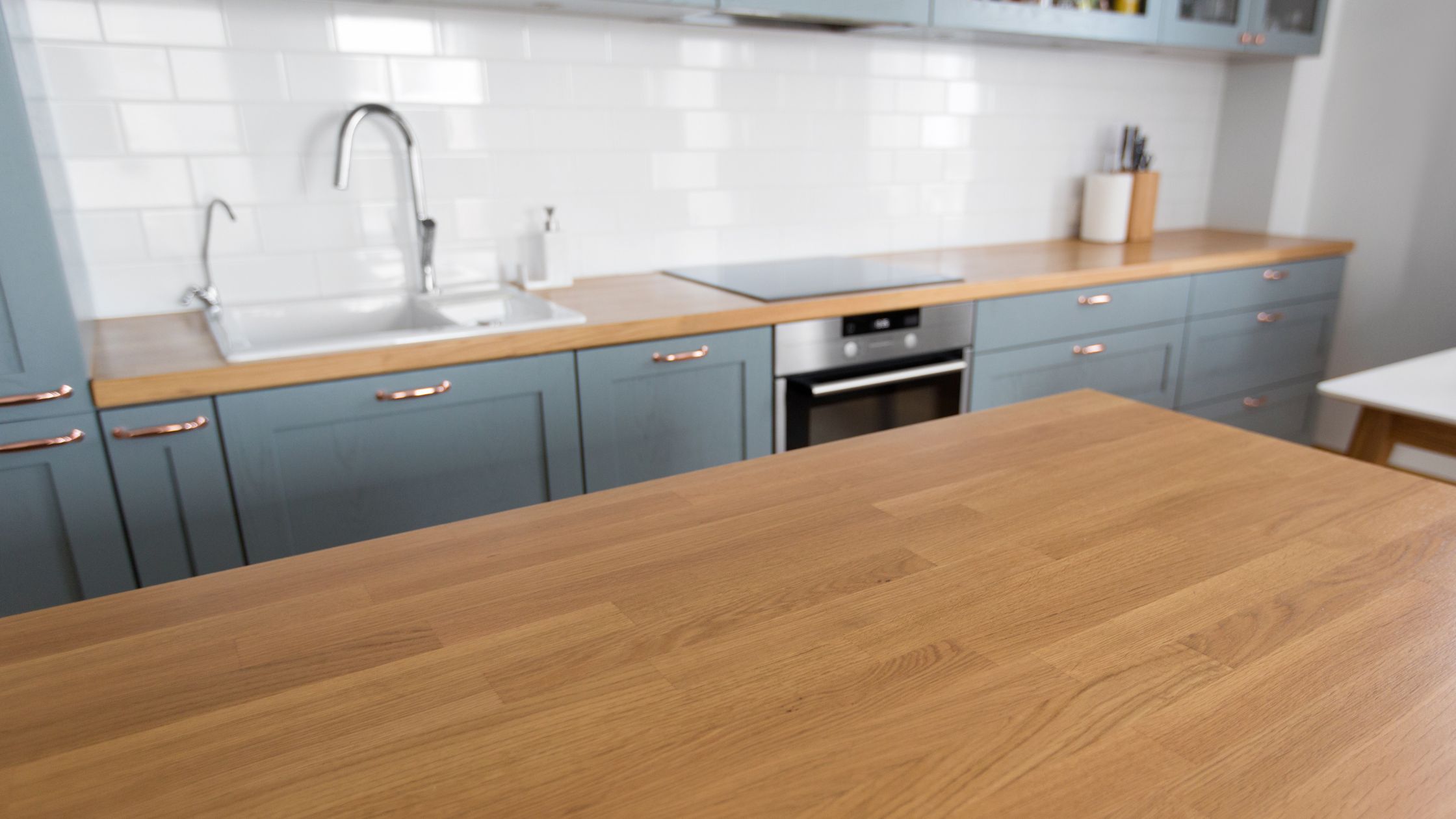
Butcher block countertops offer a warm and natural appearance, adding a touch of rustic charm to any kitchen. They are ideal for food preparation and can withstand the impact of knives without dulling them. Butcher block countertops require regular oiling to protect the wood and maintain their beauty.
- Bamboo Countertops
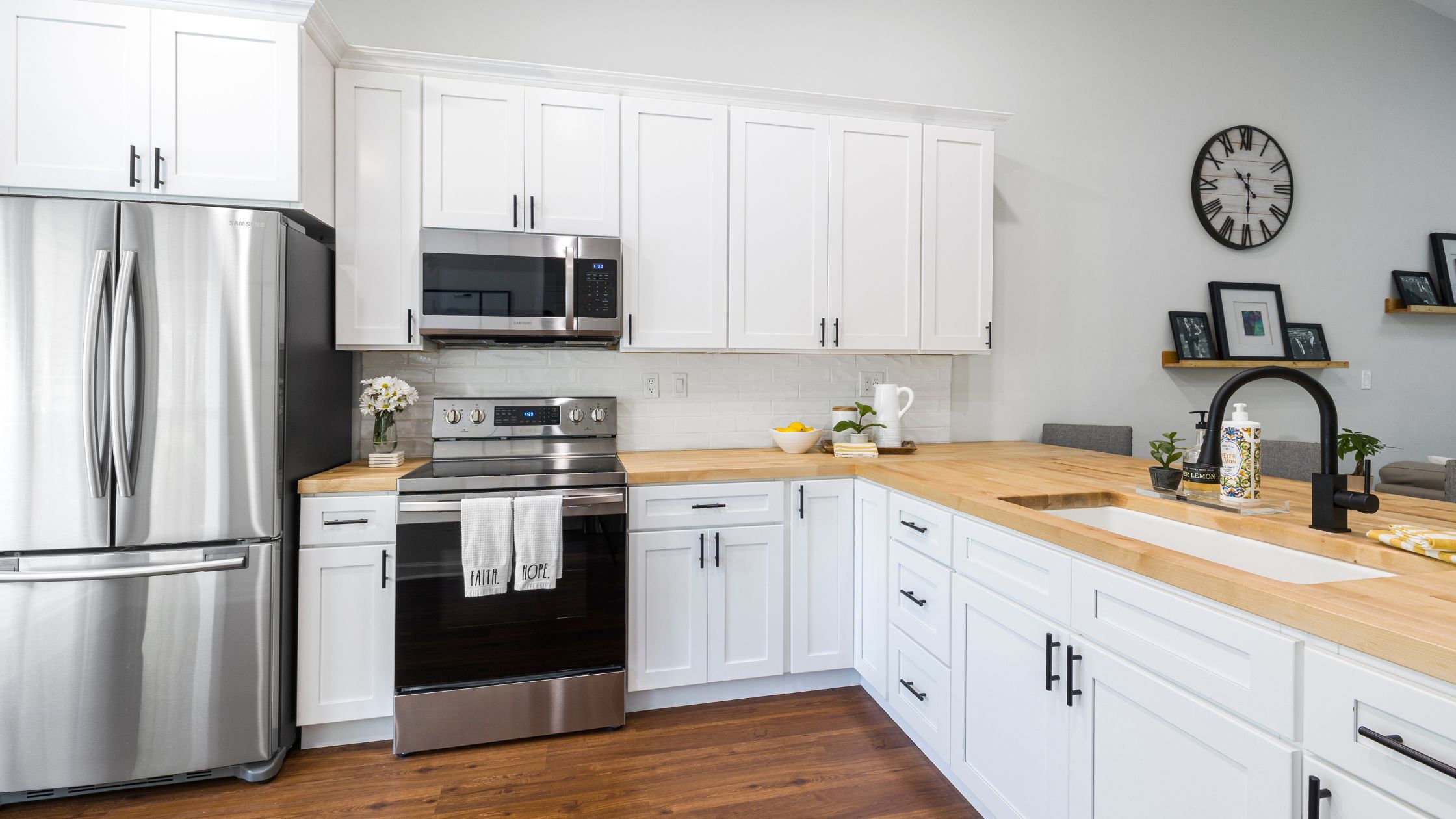
Bamboo countertops are an eco-friendly and sustainable choice due to the rapid growth of bamboo plants. They are highly moisture and insect resistant, making them suitable for kitchens and bathrooms. Regular cleaning with a mild soap solution and avoiding excessive moisture are key to maintaining bamboo countertops.
- Reclaimed Wood Countertops
Reclaimed wood countertops provide a unique and distinctive character to any space. They are an environmentally friendly choice as they reuse materials that would otherwise go to waste. To preserve the beauty of reclaimed wood countertops, regular oiling and avoiding prolonged exposure to moisture are essential.
- Hardwood Countertops (e.g., Maple, Cherry)
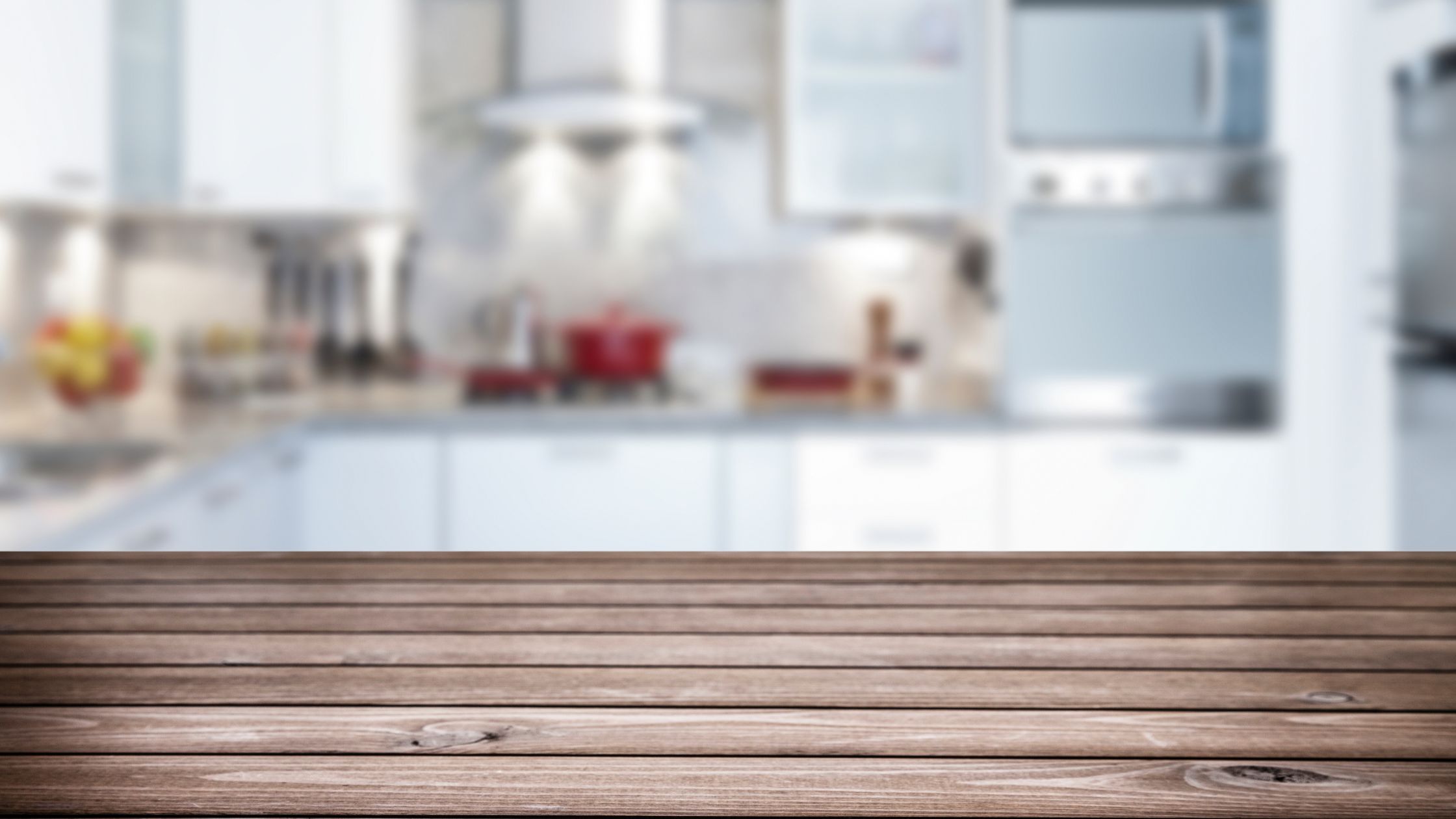
Hardwood countertops, such as maple or cherry, offer a timeless and classic look that can enhance the elegance of any kitchen. They are incredibly durable and can withstand regular use. Routine sealing and oiling are necessary to maintain the longevity and beauty of hardwood countertops.
- Composite Wood Countertops
Composite wood countertops are an affordable and versatile option. They are made by combining wood fibers with resins, resulting in a durable and low-maintenance surface. Composite wood countertops are easy to install and can be cleaned with mild soap and water.
V. Other Countertop Materials
- Laminate Countertops
Laminate countertops are a budget-friendly option that offers a wide range of styles and designs. They are low maintenance and resistant to stains and scratches. Regular cleaning with gentle detergents will keep laminate countertops looking their best.
- Stainless Steel Countertops
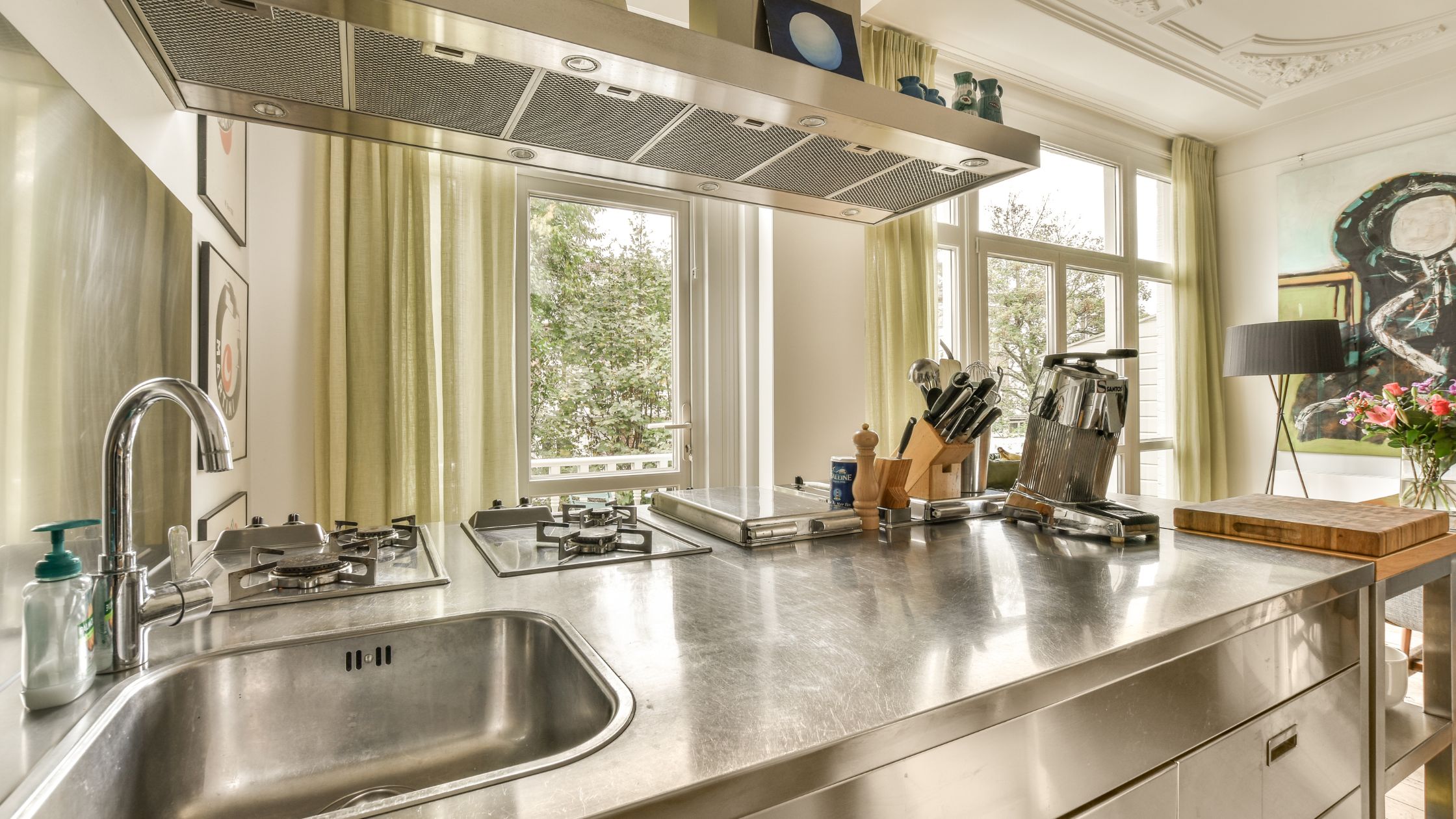
Stainless steel countertops provide a modern and sleek appearance, making them a popular choice in contemporary kitchens. They are highly resistant to heat and stains, but they can scratch easily. Gentle cleaning with non-abrasive cleaners is recommended for stainless steel countertops.
- Glass Countertops
Glass countertops create a reflective and contemporary design, adding a touch of sophistication to any space. They are easy to clean and maintain, making them a practical choice for busy kitchens. Regular cleaning with glass cleaners will keep glass countertops looking pristine.
- Recycled Glass Countertops
Recycled glass countertops are an eco-friendly and sustainable choice, as they are made from crushed glass and other recycled materials. They offer unique colors and texture options, allowing for customization. Regular cleaning with non-abrasive cleaners will preserve the beauty of recycled glass countertops.
- Concrete Overlay Countertops
Concrete overlay countertops provide an affordable option for transforming existing countertops. With a customizable and durable finish, they can breathe new life into any kitchen. Routine sealing and gentle cleaning are necessary to maintain the appearance of concrete overlay countertops.
VI. Summary
In summary, choosing the right countertop material involves considering various factors such as durability, maintenance requirements, aesthetic appeal, and budget. Natural stone countertops like granite, marble, quartzite, soapstone, and slate offer a range of options with their unique characteristics. Engineered stone countertops like quartz and solid surface provide versatility and ease of cleaning. Wood countertops, including butcher block, bamboo, reclaimed wood, hardwood, and composite wood, add warmth and natural beauty. Other options like laminate, stainless steel, glass, recycled glass, and concrete overlay offer distinct style choices. By understanding the pros and cons of each material, you can make an informed decision that suits your needs and style.
VII. FAQs (Frequently Asked Questions)
- What is the most durable countertop material?
Granite and quartzite are considered the most durable countertop materials due to their strength and resistance to scratches and heat.
- Which countertop material is best for high-traffic kitchens?
Quartz and solid surface countertops are excellent choices for high-traffic kitchens due to their durability, easy maintenance, and resistance to stains.
- Are wood countertops sanitary?
Wood countertops, when properly maintained, can be sanitary. Regular cleaning and oiling can help prevent the growth of bacteria.
- How much should I budget for a new countertop?
The cost of countertops can vary significantly depending on the material chosen. It is best to research and compare prices to determine a suitable budget for your specific needs.
- Can I install a countertop by myself?
While some countertops, such as laminate, may be suitable for DIY installation, others, like natural stone or concrete, may require professional installation due to their weight and complexity.
Remember, choosing the right countertop is a personal decision that should align with your lifestyle, budget, and aesthetic preferences. By considering the information provided in this comprehensive guide, you can confidently select the perfect countertop for your space.
